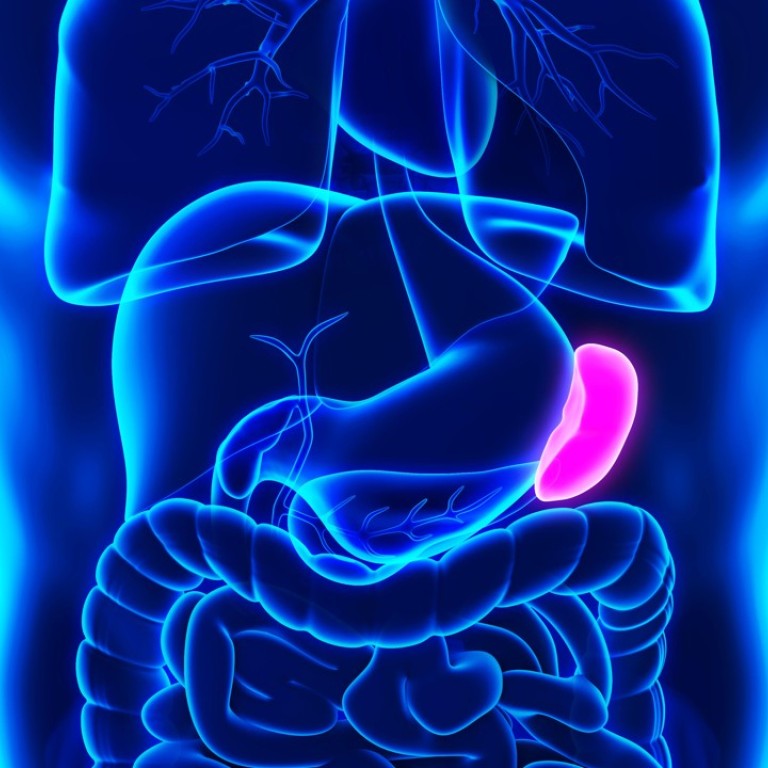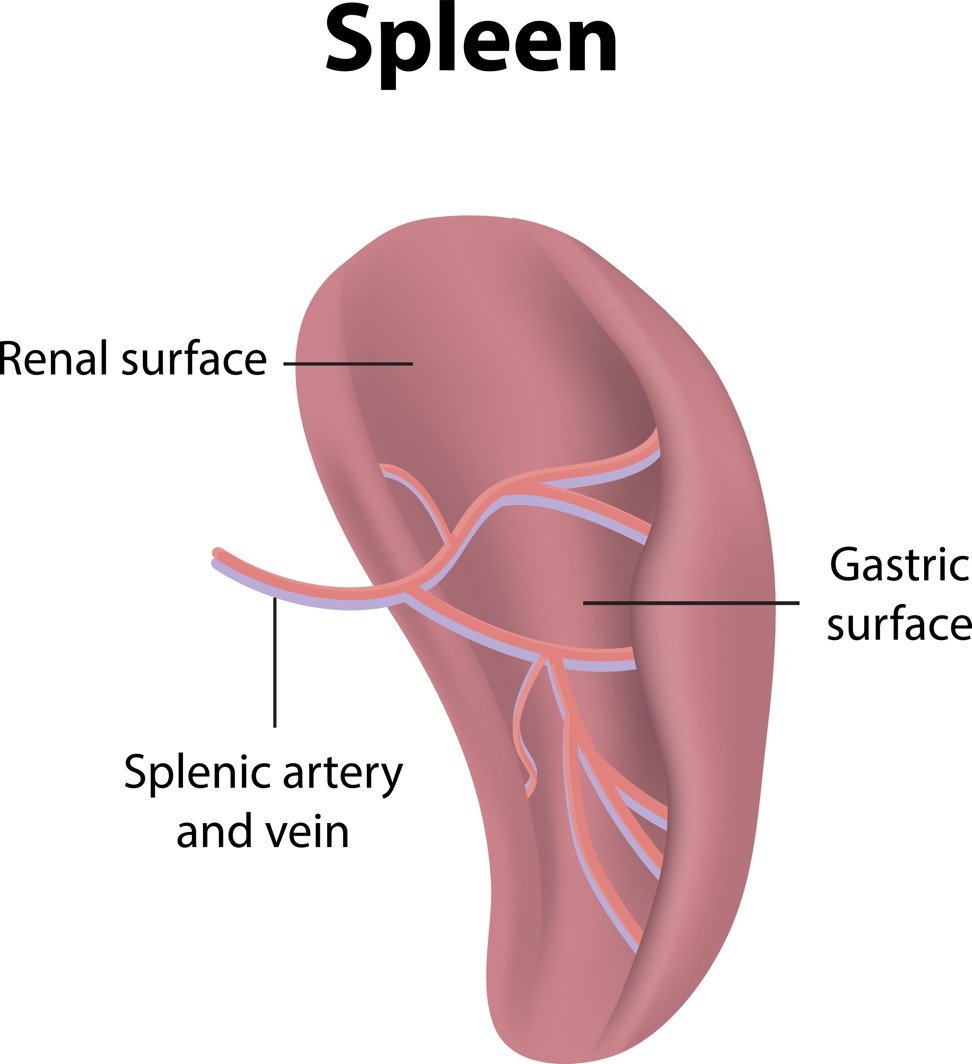
The spleen: all you need to know, from how it works to the best ways to keep it healthy
The largest organ in the lymphatic system, the spleen filters the blood and fights against bacteria such as those that cause pneumonia and meningitis
Even though adults can survive without a spleen, this organ serves several crucial functions. Expert Dr Paul Ng relates some little-known facts about it, and why to take steps to protect it.
“The spleen is a reservoir for all blood cells,” says Ng, a Hong Kong-based specialist in gastroenterology and hepatology. “It produces and trains white cells.”
It produces and trains lymphocytes, which are very important for a patient to have long-lasting immunity against any specific pathogens.
Rubber bullets kill three per cent of those they injure: study
The spleen is important for the body’s immune system because it filters the blood and fights against certain bacteria such as those that cause pneumonia and meningitis.
It fights off infections by deploying an army of immune cells, called monocytes, into the blood stream.
It is the largest organ in the lymphatic system and is located on the left side of your abdomen, where it is protected by the ribs. This protection – although seemingly ideal – can be very dangerous if a broken rib punctures your spleen.
After such an accident, the organ must be removed immediately or a person could die from internal bleeding due to the many blood vessels within the spleen – 350 litres of blood filter through the spleen every single day. An injury to the spleen can sometimes lead to it rupturing days – or even weeks – after the initial accident.

When the spleen becomes enlarged, it is an indication of serious illnesses – certain cancers such as Hodgkin’s disease or leukaemia, and several infections and diseases, such as cirrhosis and mononucleosis (the “kissing disease”) among others. Alternatively, the spleen can become deflated as a result of inhaling hypoxic gas or even due to strenuous exercise.
In bygone days, the spleen was thought to be the root of emotional issues. It was considered the source of bad temper, anger and melancholy.
The spleen is a reservoir for all blood cells. It produces and trains white cells
This theory forms the root of the rather negative word “spleenful”, denoting an ill-humoured, irritable person.
It also explains the origin of the English expression “to vent our spleen”.
The phrase, which means to express anger forcefully, goes back to a time when the spleen was believed to contain black bile, considered a source of rage.
More positively, the organ was sometimes associated with explosive wit and liveliness. Dr William Harvey, who discovered the circulation of blood, believed that “the spleen causes one to laugh”.
Unfortunately, a splenectomy, which is removal of the spleen, will not do anything to treat a bad mood, but it is performed today to solve other problems.
Ng says the spleen might be removed because of “an emergency – typically after trauma, especially a traffic accident – because it can bleed heavily” or “as an elective procedure – when it gets too large [typically in haematological or hepatic conditions] and sucks in too many blood cells, causing pancytopenia”. This condition, in which there are too few red and white blood cells and platelets, may require a blood transfusion, bone marrow transplant or stem cell transplant.
Removing the spleen can lead to impaired immunity, so doctors first give their patients vaccines, which rely on the spleen to train up the protective white blood cells, Ng explains.

The spleen is particularly important before a baby is born, when it produces red blood cells early in a pregnancy. However, the bone marrow takes up that job in the middle of the second trimester.
Some people are born with more than one spleen, known as an accessory spleen. It causes no damage, although at times can be mistaken for a tumour.
In a study of 334 patients, the Malaysian Journal of Medical Sciences found that 20 per cent had at least one accessory spleen and 40 per cent of those people had more than two.
How a naturopath made herself well, and how she helps others
Whether you have one, two, or more, it is best to keep your spleen healthy.
Three ways to ensure this are drinking only in moderation, not taking more pain medication than prescribed, and enjoying safe sex.

